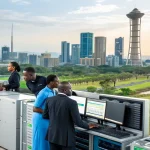While childbirth naturally focuses on the person in labor, maternity staff have witnessed some truly unusual behaviors from nervous, excited, or simply unprepared fathers-to-be. A recent inquiry asking medical professionals about their most memorable experiences with expectant dads has uncovered a collection of stories that range from amusing to downright strange.
The question “Maternity staff, what are the weirdest or wildest things you’ve seen from expecting fathers?” prompted healthcare workers to share their most unusual encounters, highlighting how differently people respond to the stress and excitement of welcoming a new life.
The Unexpected Side of Fatherhood
Medical professionals note that while mothers endure the physical challenges of childbirth, fathers often process their anxiety in unexpected ways. These behaviors can manifest as anything from excessive nervousness to inappropriate humor or even actions that inadvertently shift attention away from the laboring partner.
One nurse with fifteen years of experience in labor and delivery explained, “We see everything from men who faint at the first sign of blood to those who try to document every second with elaborate photography setups. The delivery room brings out unusual behaviors in people who are otherwise completely normal.”
Common Yet Bizarre Patterns
Hospital staff report several recurring themes in expectant father behavior:
- Fainting episodes – particularly common during epidural administration or at first sight of blood
- Inappropriate timing of meal deliveries or food consumption
- Excessive focus on electronic devices or sports games during active labor
- Unusual requests for music or environmental adjustments in the delivery room
“We had one father who brought his gaming console and asked where he could set it up,” shared a labor and delivery technician. “He genuinely thought he’d have time to play between contractions. His partner was not amused.”
When Fathers Become Patients
Perhaps the most common story shared by maternity staff involves fathers who end up requiring medical attention themselves. The phenomenon is so frequent that many delivery wards keep smelling salts and extra chairs readily available.
“I’ve seen strong men who work physical jobs all day completely collapse at the sight of an IV being placed,” said one obstetrician. “We actually had to wheel one dad to the emergency room after he hit his head falling. He needed stitches while his wife was still in labor.”
Another nurse described a father who became so light-headed during delivery that he slumped against medical equipment, accidentally disconnecting monitors and causing a momentary panic among staff.
Cultural Differences and Generational Shifts
Medical professionals also noted how cultural backgrounds and changing generational attitudes affect father behavior during childbirth. Younger fathers today are generally more involved in the birth process compared to previous generations.
“We see everything from men who won’t enter the room until after delivery to those who want to catch the baby themselves,” explained a midwife with twenty years of experience. “Cultural expectations play a huge role in how comfortable men feel in the delivery room and what they consider their role to be.”
Some hospitals have responded by offering specific preparation classes for expectant fathers, helping them understand what to expect and how to be supportive partners during labor and delivery.
While the focus rightfully remains on the person giving birth, these stories highlight the human side of childbirth – a transformative experience that affects everyone involved in different and sometimes surprising ways. For maternity staff, these unusual father behaviors have become an expected part of bringing new life into the world.









